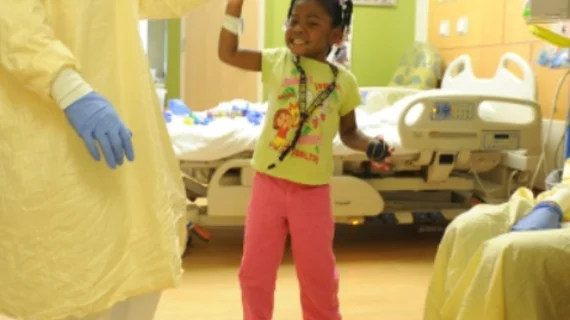Targeted radiation may help children with chemo-resistant liver cancer
In pediatric patients with chemotherapy-resistant liver cancer, targeted tumor radiation can improve survival or help shrink the tumor to allow for surgery, according to a recent study published in Pediatric Blood and Cancer.
The treatment—Transarterial Radioembolization with Yttrium-90 (TARE-Y90)—is approved by the FDA and uses an image-guided catheter to deliver radioactive microbeads directly to tumor sites. It allows for higher doses of radiation while conserving normal tissue in the surrounding area.
“TARE-Y90 should be considered effective and feasible for children with liver cancers and has the potential to be used earlier in treatment, alongside chemotherapy, to help reduce tumor size to provide better surgical treatment options and improved prognosis," said lead author, Allison Aguado, MD, with Nemours/ Alfred I. duPoint Hospital for Children in Wilmington, Delaware, in a release.
In the study, researchers treated 10 children with primary liver cancer using TARE-Y90 between January 2011 and April 2017. All were between two and 18 years old and had previously been treated unsuccessfully with chemotherapy and had no surgical options.
Median patient survival from initial diagnosis was 12.5 months, and four months after TARE-Y90. One patient was transplanted six weeks following treatment. According to RECIST 1.1 criteria of all target lesions, eight of nine patients had stable disease and one of nine progressive disease. Using mRECIST, two of seven patients exhibited partial response, four of seven showed stable disease and one progressive disease.
Despite the potential of TARE-Y90 it requires specialized training and is only offered in a few hospitals. The authors also said more research is warranted to better identify which patients would benefit most from the treatment.
"When chemotherapy fails, additional treatment options for children with non-surgical liver cancers are limited and not very effective," Aguado said in the statement. "TARE-Y90 has the potential to offer children with the hardest to treat liver cancer a treatment that is less toxic than current options and could facilitate a cure."

